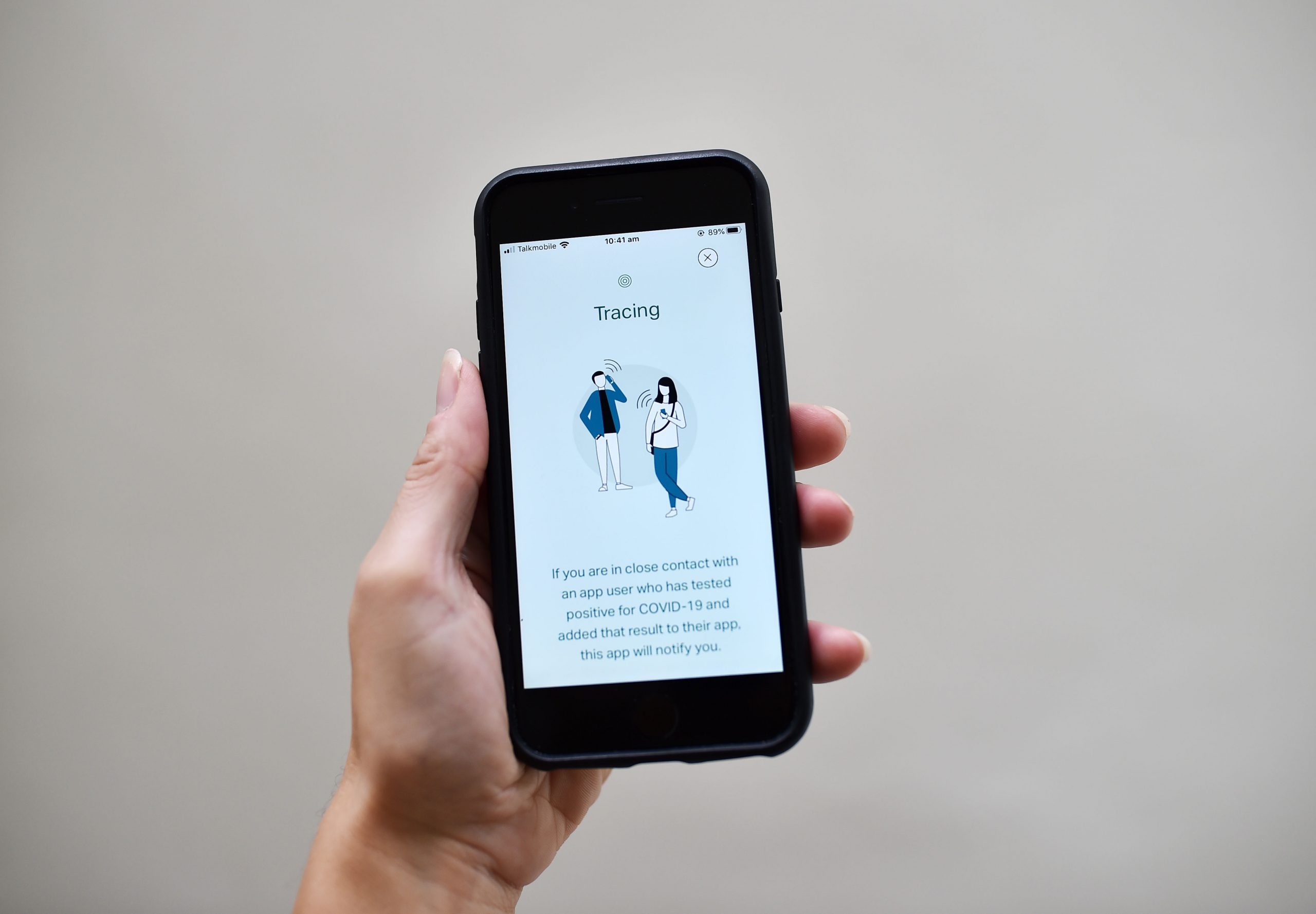
Celebrity news, beauty, fashion advice, and fascinating features, delivered straight to your inbox!
You are now subscribed
Your newsletter sign-up was successful
This one's important.
It's no news that COVID-19 cases have been on the rise in the UK, with many staffers across the country 'pinged' by the NHS Track & Trace app after restrictions eased on July 19th.
Today, one of the brains behind the app - the chief scientific advisor who helped to design the app, which tracks those with COVID and lets you know if you've been in to contact with them - has urged users not to delete the app from their smartphone to reduce their risk of having to self-isolate.
If you have the Track & Trace app, when you come into contact with someone with COVID-19, you will be told to self-isolate for ten days at your home.
It's been reported that more than 1.2 million people have been 'pinged' over the last two weeks or so, but Professor Christophe Fraser wants to reassure you that the app isn't the enemy here.
He said: "It might not feel like it right now, but this app is your ally."
The scientist went on to explain that while self-isolation may be testing, the app is helping to both minimise the number of new cases in the UK and further reduce hospital cases, too.
Celebrity news, beauty, fashion advice, and fascinating features, delivered straight to your inbox!
A bit like wearing a mask, having the app isn't a legal requirement, but it is encouraged.
He believes that deleting it now to avoid self-isolation for the summer only runs the risk of further restrictions later in the year - which, if the many long COVID symptoms are anything to go by, isn't ideal.
At current, ministers are said to be hurriedly trying to crisis avert. Staff shortages are happening across the UK as a result of a wave of COVID isolation Track & Trace notifications. This has caused disruption in a number of critical sectors, including supermarkets.

One way of avoiding staff shortages is to allow double jabbed workers to skip the ten day isolation period. Plus, they've upped the number of tests emergency service and supermarket depot staff are receiving.
Fraser told the Daily Mirror: "Like many people, I am enjoying more freedom and would be annoyed to now have to self-isolate."
"But deleting the app is not a good move. As one of the scientists who designed it, I can tell you that the app does work and is doing exactly what it is supposed to do."
"Our research showed that over the winter period, use of the app helped reduce the size of the epidemic by roughly 14% to 24%."
"And it is still working now, preventing new cases and hospitalisations every day."
Recent starts from YouGov showed that one in ten NHS Track & Trace users have deleted the app so far. One third also admit they sometimes or often turn off the Bluetooth tracking function.
What do you reckon - will you keep the app or delete it?

Ally is Marie Claire UK's Senior Health and Sustainability Editor, a well-regarded wellness expert, ten-time marathoner, and Boston Qualifying runner.
Utilising her impressive skillset and exceptional quality of writing, she pens investigative, review and first-person pieces that consistently demonstrate flair and originality.
As well as writing, Ally manages a team of freelancers, oversees all commissioning and strategy for her pillars, and spearheads the brand's annual Women in Sport covers, interviewing and shooting the likes of Mary Earps, Millie Bright, and Ilona Maher. Shortlisted for three BSMEs and winning one in 2022, Ally lives and breathes her verticals: her eye for a story and connections within the wellness sphere are unrivalled. Follow Ally on Instagram for more.
